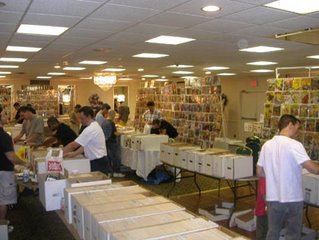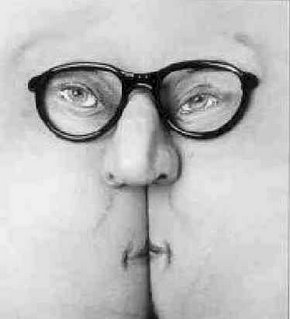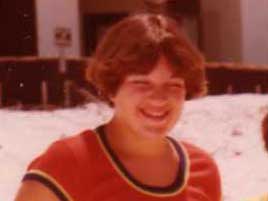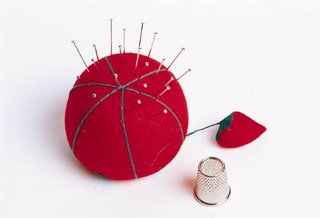
I didn't watch
Paula Zahn's show last night, but I knew something was up when I checked the adoption boards this morning. There were a few postings yesterday letting people know the show was going to be on the air last night. They were very excited. Today, they're still excited, but in a whole different way.
One role that you take on, willingly or not, when you enter the adoption world is that of educator. It is amazing the amount of false information that is out there and accepted as truth. Last night's show could have been a great opportunity for Paula Zahn and CNN to correct misconceptions, instead they perpetuated them.
First, I'd like to explain why and how we chose China. Jim and I talked about adoption on and off for several years. I had always wanted children. Jim wasn't as sure. He had been married before and they had made the decision to not have children. In his mind that chapter was closed.
Jim and I had been seeing each other for a few months when it was time for my yearly exam. My doctor, as always, asked if I was in a relationship. When I told him that I was and that it looked serious, he told me that if thought we’d want children then I needed to start infertility treatment immediately. I was in my mid-30’s, but had known since I was diagnosed with
PCOS at 26 that getting pregnant would be a challenge for me.
I definitely knew that I wanted children, but I did not think it would bode well for my relationship if I got us started on infertility treatments before we’d dated for six months. Call me silly. I knew what I was risking, but I decided it was more important at that time to build a good foundation for our relationship.
Within months of Jim and me marrying, we had his mother, brother and niece move in with us. His mother was only with us a few months. Without going into detail, his brother and niece’s stay was much longer. T had just turned 11 when they moved in with us. For all intents and purposes, Jim and I spent the next 20 months raising her and acting as her parents.
When they left, it left a huge hole in our hearts. When adoption had been brought up in the past, Jim had confessed his fear that he wouldn’t be a good father. His childhood is a tale best told by Dickens. That time with his niece taught him that he did have what it takes and would be a good father. The initial pain of losing contact with T, however, prevented us from acting immediately. We’d basically lost her and the thought of going through the process and “losing” our child again was terrifying.
I began to research. By this time I was nearing 40 and I learned that we would not be eligible to work through any regular agency as they would not accept applications if the mother was over 40.
We discussed fostering and adopting. In this case we’d be bringing home an older child and probably one with problems. These situations are fraught with their own problems and still no guarantee that you’ll end up with a child.
We discussed private adoption. The idea of advertising for a birth mother was abhorrent to us. The idea of creating a book and trying to “sell” ourselves was equally abhorrent. We also discussed the high price of involving attorneys and the high risk involved. It is a fact, and must be faced, that many domestic adoptions fail. And when they fail you are out tens of thousands of dollars. We knew that an adoption would be a one-shot for us. We could not afford to go through a failed one, financially or emotionally.
I spent hours on the Internet looking at adoption sites, looking at Rosie’s kids, and reading about the different international programs. I assumed they’d be totally out of reach for us, but I clicked and read everywhere. The more I read, the more I realized that this could be the way for us.
China was not my first choice. In fact, my first choice was Mexico or any Hispanic country. I was born in Mexico, though not of Mexican heritage. My father was raised in Mexico. I did some research into Mexican adoption and was surprised to learn that they required one of the parents live in Mexico for an extended period of time while the adoption was taking place. I can’t recall the exact length but believe it was around three months or more. This was a definite minus.
One day I was reading the newspaper and saw a notice for a meeting to be held at the library to discuss international adoption. I called and signed up. A week before the meeting was to take place, I received a call that it was being postponed. I started looking around on the Internet and found a different agency in my state. They had an informational meeting planned in a week. The meeting was about three hours south of us. We made plans to attend the morning meeting and then go to lunch at
Buca di Beppo’s.
Prior to going, I researched this agency and the countries they had listed. They arranged adoptions for China, Russia, and Guatemala. We pretty much eliminated Russia due to the requirements and costs. As two teachers, we could afford neither the time nor the costs associated with making two separate trips to Russia.
At the end of the meeting, families who had adopted from Guatemala and China came out to discuss their experiences and introduce their children. All the children, no, all the families were just beautiful. We left the meeting and went to lunch. At lunch we discussed everything we learned that day as well as what I’d uncovered in my research. That is when and where we made the decision and chose the country. We asked our server to take our picture to commemorte the moment. That picture was included in our dossier and is the one posted as our profile picture. I was still undecided between the two countries. Jim, however, felt a strong affinity for China. We started discussing what connections we were feeling for China – far too many had to do with Chinese food, but it was a start.
It’s been years since that day. Far longer than we ever dreamed it would take us to go down this road, but along the way we’ve read, researched, learned and grown in our knowledge. We’ve made wonderful new friends who had already travelled or are now on this same path with us. Our families and friends embraced this decision and encouraged us along the way.
From the transcripts:
MARTIN: Maybe they think they can adopt a smart kid that is going to grow up to be a doctor? I don't know. They need to realize that's called training, not just inherent, it will happen when they're born.
Angel, help me out.
MALDONADO: Absolutely. This is something I've been looking into for a long time. Americans have this love affair with girls from China. There is this belief, this perception, irrational as it might be that if you adopt a little girl from China, she's going to be intelligent, she's going to be more lovable.
MARTIN: Like the porcelain doll.
Not once did we consider that by choosing China we’d be getting a future doctor or a porcelain doll.
UYGUR: I think a lot of people are looking for Muslim children these days.
ZAHN: Yeah, right.
Actually, no. It is against Islamic law for a Muslim child to be adopted to a non-Muslim family. There are also societal barriers to their adoption to other Muslim families. Unfortunately, the fate of these children is very bleak.
MALDONADO: I think what we need to do is we need to break down some of the misconceptions. For example, people believe if they're adopting a child from China, the child is going to be healthier than a child they adopt in the United States and that is just not true. Even if the child is born ...
ZAHN: It defies logic. The quality of the medical care many of these kids have suffered through the first several months of life.
We do not expect a healthier child. We know there are no guarantees in life. Not when you give birth, not when you adopt. We know that and accept that. While many of the orphanages who’ve been involved with international adoption have improved their circumstances, these are still orphanages. They often lack heat, they run short on food and other supplies, and they are limited by sheer numbers on how much one-on-one attention they can give the babies who need this for good early development. Fostering has become more popular and has helped to improve the situation for many orphaned children. We are, however, still planning and preparing to bring home a child who suffered from poor early nutrition and will probably be developmentally delayed.
MALDONADO: We definitely see that idea of the beautiful Chinese little girl, as compared to do, they really want to adopt a black boy.
I want a child. My husband wants a child. Be it green, purple, or polka-dotted. The facts are that it is very difficult to adopt a baby or a toddler domestically, regardless of race. In fact the
National Association of Black Social Workers has worked against multi-racial adoption for a very long time. There is a growing program for adoptions from Ethiopia. That would be my next choice if we weren't already in the process with China.
If at any time in our process, we would have learned of a situation open to us adopting domestically, we would have considered it. This is the path that opened for us, and we embrace it.
I am so deeply disappointed in the lack of research conducted by Paula Zahn, the CNN staff, or any member of her panel. In my opinion, her guests appeared to have their own agenda and didn’t bother to find the facts.
If this is the level of research that is given to a story on CNN, then how can I believe any news story they offer? I can no longer trust them as a news source. It is a shame as I find Fox to be just as slanted in their portrayal of news. This is why I no longer rely on any one news source. I have learned to research and get the answers for myself.
Sometimes ignorance is bliss, sometimes it’s just ignorant.

































